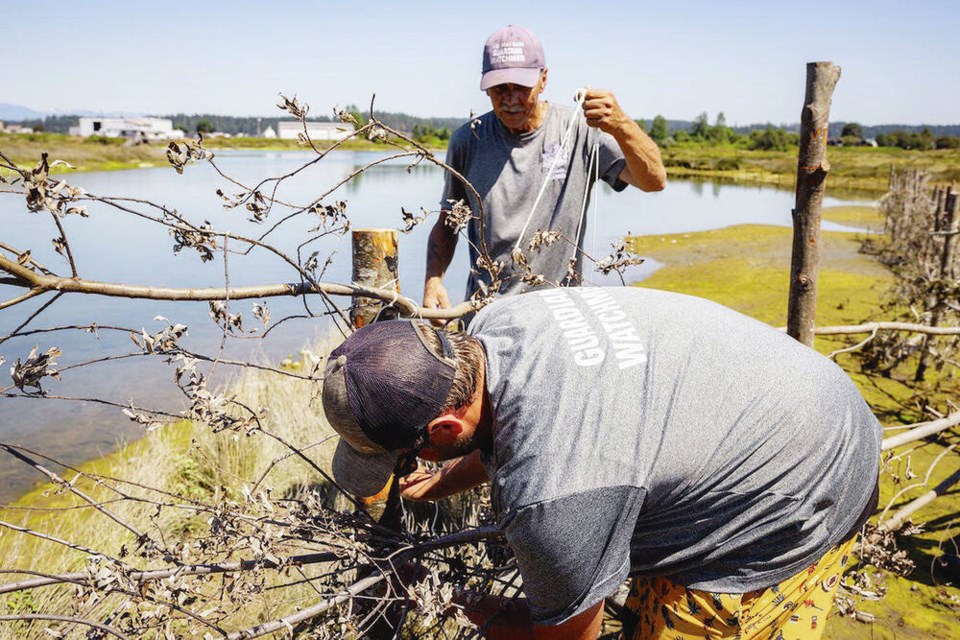In addition to a commitment to intergenerational equity, which I discussed last week, the recent UN Environment Programme report Navigating New Horizons also calls for “a new social contract reinforcing shared values that unite us rather than divide us” and “a new global emphasis on well-being metrics rather than pure economic growth.” What would that look like?
The report notes that a social contract is the web of trust and reciprocity that binds different parts of society together. It is hardly a new concept — the report notes it is “found in cultures and religious traditions across the world” — and is rooted in the fact that humans are social animals. One of the things that has made us such a successful species is our social co-operation.
In a 2016 commentary on the Leakey Foundation website, Stuart West, professor of evolutionary biology at the University of Oxford, discussed the evolutionary benefits of co-operation. In part, it is because of the benefits of “reciprocity, where people are more likely to help individuals that have helped them.” Another factor is that cooperation helps the group survive because they can hunt and forage more efficiently and defend themselves from attack — whether by predators or other humans.
Indeed, West notes, competition and conflict between groups can also lead to cooperation within groups. We are all familiar with this: It is used — sometimes maliciously — in a variety of social contexts, including sports, business, politics and war. “However,” notes the UNEP report, “this social contract is being ignored in many places of the world, where short-term profit and individual success have become dominant, to the detriment of most of the world.”
One key part of a new social contract, the report suggests, is to engage a more diverse group of stakeholders and enable “the active participation of individuals and groups in the decision-making processes that affect their lives.” This needs to begin at the local level, from where it can filter up. It requires greater transparency and accountability from leaders and the use of tools such as digital platforms, citizens’ assemblies or participatory budgeting.
A second key element, closely related to the first, is to give young people a stronger voice. After all, it is their future we are talking about. Youth assemblies or youth councils — the City of Victoria has one — are a place to begin. But we need to expand this to engage youth in helping to design the communities and the society that they will be living in for decades to come. These are important ways to demonstrate inter-generational equity.
Both these elements can also contribute to another priority identified in the report, namely “promoting agile, adaptive governance,” particularly at the local level. I will return to this in a couple of weeks, when I look at what all this means for the Greater Victoria region.
A third important approach is “the idea that the social contract should include a focus on humanity’s relationship with the environment.” The idea that a social contract should expand to include our connection with nature is not new to Indigenous communities, where a relationship with the Earth and with other species — “all our relations” — is a central aspect of their beliefs and way of life. Indeed, the Truth and Reconciliation Commission has stated: “Reconciliation between Aboriginal and non-Aboriginal Canadians, from an Aboriginal perspective, also requires reconciliation with the natural world.”
In addition to a new social contract, the UNEP report proposes we need a new economic framework with an emphasis on well-being metrics rather than just on GDP. Governments at all levels will need to put planetary health and human well-being at the heart of their economic policies and budgets.
This new economic system involves expanding our concept of capital to include natural, social and human capital — also known as “inclusive wealth.” It also involves “a fundamental reimagining of the role of businesses and markets.” Instead of being narrowly focused on short term profits, they need to become “engines for prosperity, social cohesion and healthy environments.”
Interestingly, and perhaps unsurprisingly, “the demand for alternative economic and well-being measures was strongest among young people,” the report notes; yet another reason to adopt an inter-generational equity approach.
Dr. Trevor Hancock is a retired professor and senior scholar at the University of Victoria’s School of Public Health and Social Policy



